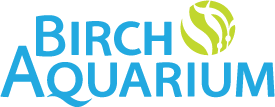The Dirty Dozen: 12 Risks and Challenges Associated With Using Paper Forms
6 min read | Published November 13, 2023
The Dirty Dozen: 12 Risks and Challenges Associated With Using Paper Forms
6 min read | Published November 13, 2023

By DocNetwork

By DocNetwork

By DocNetwork
Introduction
Using paper forms to manage participant information is a dated practice that brings with it a multitude of risks and challenges, particularly concerning the safety and wellbeing of the youth involved. When the management of essential information such as medical histories, emergency contacts, and consent forms relies on paper, it inherently becomes susceptible to a range of vulnerabilities – from loss and misplacement to accessibility issues in times of emergencies. Let’s examine just some of those, a number of which can be easily overlooked in the business of our day-to-days.
Participant Health and Safety
- Inaccuracy and Illegibility: Handwritten forms are susceptible to errors like illegible handwriting and incomplete information, leading to misunderstandings and incorrect data entry, which can compromise the safety and care of the campers.
- Challenges During Emergencies: Quick, accurate, and up-to-date information is essential during emergencies. Paper forms hinder the rapid access to crucial medical information necessary for effective emergency responses, putting the safety of the campers at risk.
- Loss and Misplacement: Paper forms containing essential information can be easily lost, damaged, or misplaced, making critical data such as medical histories and emergency contacts unavailable when most needed, thereby jeopardizing camper safety.
- Inefficient Communication: The dependency on paper forms can lead to inefficiencies and errors in communication among camp staff, parents, and medical personnel, making coordination for the care and safety of the campers cumbersome.
- Lack of Timely Updates: Without the ability for real-time updates, changes in camper’s medical information or emergency contacts might not be promptly reflected in the system, potentially compromising the care and response in critical situations.

Data Security and Privacy
- Privacy and Security Risks: Physical paper forms can be accessed by unauthorized individuals, leading to potential breaches of sensitive and private information related to the campers, hence posing a significant risk to their privacy and security.
- Data Redundancy: The use of paper forms can lead to the duplication of information and data redundancy, making it challenging to maintain a single, accurate source of information, which is essential for the safety and proper management of the campers.
- Limited Accessibility: The physical nature of paper forms restricts access to authorized personnel who are physically present where the forms are stored, limiting real-time or remote access to information, which is particularly crucial in emergency situations.

Staff Efficiency
- Limited Historical Tracking: Paper forms make it difficult to maintain and access historical data efficiently, impacting decisions and strategies aimed at improving the overall safety and experience of the campers.
- Difficulty in Reporting and Analysis: The labor-intensive nature of extracting and analyzing data from paper forms hinders the ability of the camp to generate insights and make informed decisions promptly for the wellbeing of the campers.
- Wasted Resources: The reliance on paper forms consumes substantial resources in printing, distribution, and data entry, diverting staff from focusing more on camper care and engagement.
- Environmental Impact: Usage of paper forms contributes to increased consumption of paper, promoting practices that are not environmentally sustainable.

Conclusion
The dependence on paper forms significantly compromises the efficiency, accuracy, and most critically, the safety of camp operations. Transitioning to digital solutions like electronic health record systems is not merely a technological upgrade but a strategic move towards ensuring a secure, efficient, and responsive environment prioritizing the safety and welfare of the youth in the camp. Adopting modern digital solutions mitigates the risks associated with traditional paper forms, enhancing the overall management and operational experience in youth camps.
Let us show you why over
1,250 programs nationwide
choose CampDoc.
Schedule a Demo Today!


